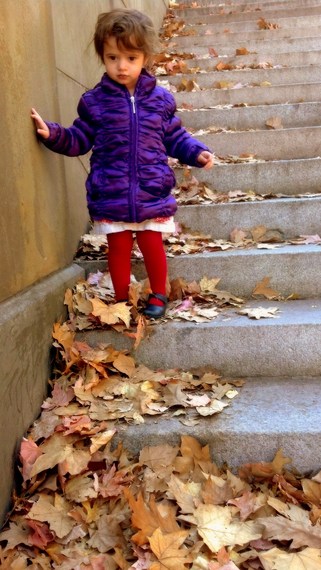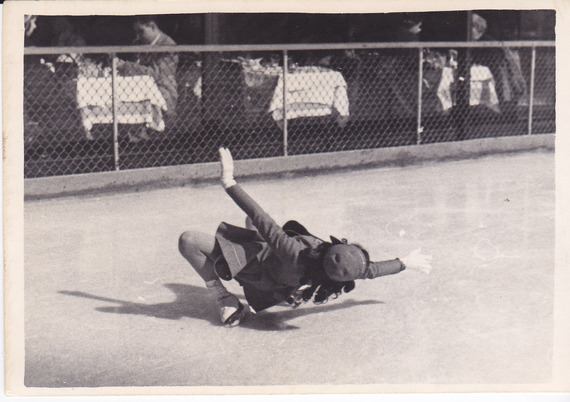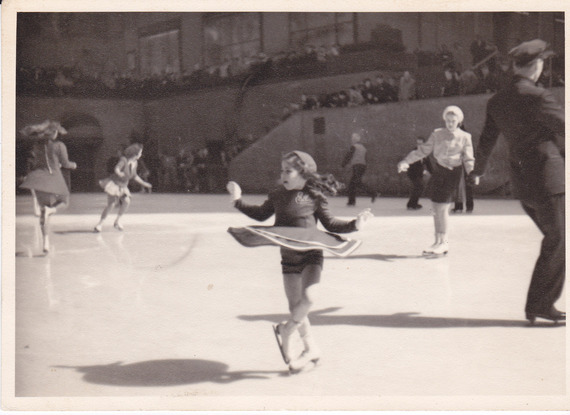Today I am packing up the summer box. It is a clear, plastic box that neatly slides into the top of our wardrobe. The wardrobe is as clean and tidy as the day my husband assembled it. We moved here only two years ago, in spring. If spring is the season of not yet opened buds and just greening trees, autumn is its own new beginning: school and cooler winds bring people back from their sea-side jaunts to the city, to local pubs and restaurants, to their boxes filled with corduroys and sweatshirts and tweeds.
I am a Los Angeles transplant. To me, New York City will always be the cinematic Woody Allen universe of bright yellows and reds in fall and rainy days in front of old movie houses on side streets downtown. It will always be my freshman year at Columbia, and the first time I had to wear a cable knit sweater. It is football season and short days and candles and homesickness and the avenues of New York City lighting up one by one as the trees and lamp posts are trimmed with bright white bulbs. It is midterms and trains to friends' houses upstate and admiring rich kids' sleek leather boots and hearing a capella holiday concerts in the lobby of Furnald Hall.
But this autumn does not beckon in the way that it always has before. For many people, autumn's chill and fading light, is a metaphor for death. Poets call upon the season to symbolize nameless specters lurking in their minds; it is a descending darkness that represents our fears, both named and impossible to name.
My mother is sick. I cannot live in denial anymore.
She has been sick for a while now, if dementia constitutes an illness. She suffered a stroke at only 68 years of age: a bleed caused by a drug that ought never to have been prescribed. It happened in November of 2009. Fall is my mother's favorite season too; that fall she lay in the I.C.U. while I ate turkey slabs with boxed gravy in the hospital cafeteria.
My husband was with his family on Thanksgiving Day of 2009, but I could not leave my mother. She was awake, she was afraid; she was comforted by familiar poetry even though she couldn't remember my name. She knew, at times, that I was her daughter, the baby sister, and she knew the older one too, sitting next to me while we both held her hand.
I told my mother that when she got better I was going to take her to see the origami holiday tree at the Museum of Natural History, and the skating rink at Rockefeller Center where she had performed for thousands in her youth. I told her that autumn was waiting for her: the cold dark nights that she loved so much, the crunchy leaves that had never to her symbolized finality and death but instead thrill and possibility. My mother was the Morticia Addams of weather. If it was raining or sleeting or bitingly cold and dark, she grew electric with excitement.
It is now 2014, and my mother does not know that it is fall. She is in the hospital again, as she has been many times in the last year. She has recently begun to suffer from acute panic attacks. I begged the doctor to make her comfortable. I begged the doctor for a prescription for Xanax. Today, at long last, it was granted.
My daughter turns three years old this November. After two and a half years of harmony, I've had to face what every parent must face at various times throughout parenthood: disequilibrium, the experts call it. Children, they say, go through periods of equilibrium with their caretakers followed by periods of disequilibrium. I have witnessed, for the first time in my child's career as a person much foot-stamping, whining and a characteristic certainly not exclusive to small children: an inability to appreciate her good fortune in life while stubbornly focusing on something she feels denied.
I love her so much. She has certain expressions and a movie-star glow that recall my mother's baby photos. I put my child down on the street and she dashes into the crowd with a speed I thought only possible in cartoons. My mother has told me she was the same way, and that my grandmother was forever pulling out her hair trying to keep track of her as a toddler.
That's why they gave my mother figure skates at the age of four. She did a lot with them, dazzling hundreds of onlookers at Rockefeller Plaza with her double jumps and cantilevers and sit spins. She introduced the song "Sleigh Ride" at a Christmas show one year and skated on live television when she was a teenager. She went on to dance on Broadway and act on television. She was all possibility and prodigy and talent; her bulb burned brighter than most.
And then she was my mother. Her influence remains in the poems I read to my child, the clothing I am drawn to, the music I listen to and in my love affair with the performing arts. She haunts the periphery of my days with my own young daughter.
My mother senses that she is not who she once was and she asks me to help her find that person. I struggle to give her hope where there really isn't much to be had. Dementia loots the brain but leaves the soul behind to mourn its losses. Some nights while I am putting our child to sleep, my husband goes to her apartment to hold her hand, to give her something to calm her down, to chat with her until she falls asleep.
She won't ever put out my clothes for school again. She doesn't remember what I looked like when I wore them. She doesn't remember her granddaughter's name, but she hears her voice chirping in the background and clucks with delight at its charm. She tells me how much she wants to see her; I remind my mother that she saw her yesterday. And around we go.
It's always winter for my mother now. There will be no more springs and no more falls, even if she lives through 10 more. I hold my daughter close and read her dozens of books long past bedtime. I don't care if she goes to bed late because she is making paper chains with her father. I don't mind if she wants to wear her nightgown and rain boots to the local bookstore. We only have so many seasons in life, and right now, life is good and warm and cozy with my young family.
I wish I could bring my mother into our world. I wish she could remember the days we spend together at the park. I wish she could remember the days of my youth. But she doesn't. I mustn't stubbornly focus on what I cannot have. Isn't that what I'm trying to teach my toddler?
I must not relinquish autumn to the dark winds that swirl this year. This was my mother's favorite season. It's time to turn up the living room lights as high as they will go and dance to Benny Goodman with my husband and my daughter. My mother would appreciate that.
When my mother is no longer, whenever that may be, it will be more important than ever to claim autumn as a time of celebration. I will say this to my daughter:
This was one of your grandmother's greatest joys, this season. There is promise in the air. We see store windows festooned with colorful leaves and black cats, lined notebook paper and pencil sharpeners at the drugstore, magazine covers depicting holiday parties, twinkling lights. We hear festive music pouring out of every radio, read picture books by the fire, jump in the swirling leaf storms, smell chestnuts on the street corner and make merry in the darkness of early evening. This was your grandmother's.
She gave it to me.
And I give it to you.
ALSO ON HUFFPOST:



